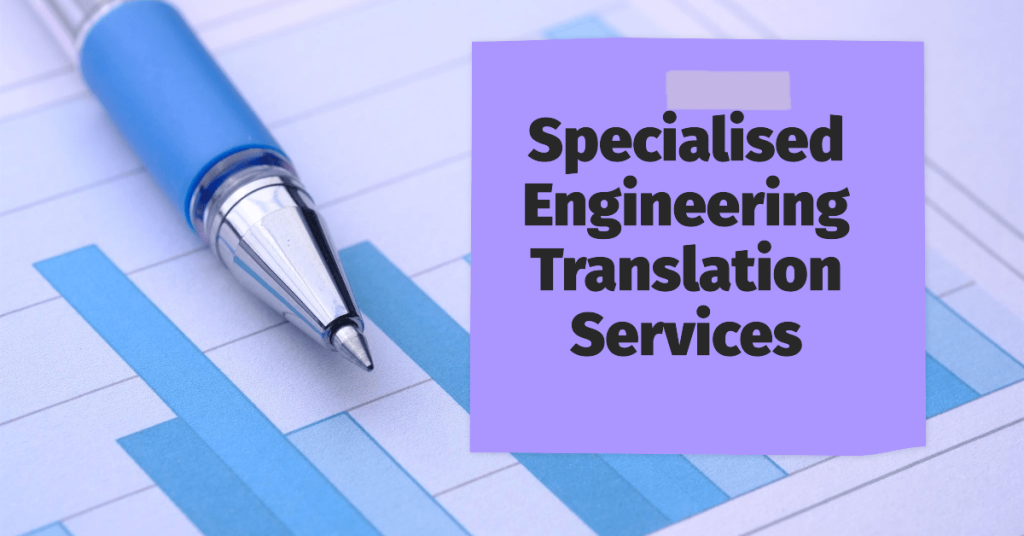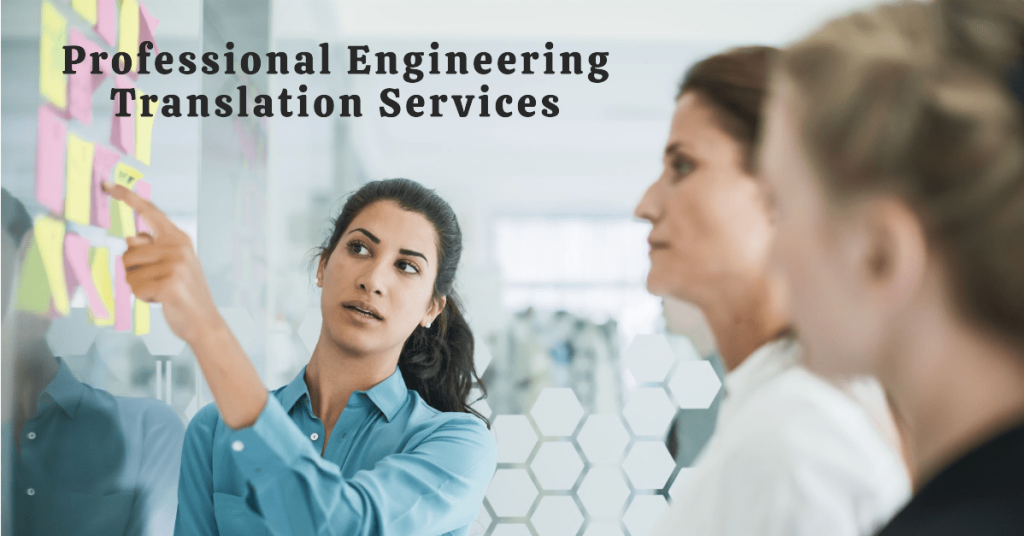Professional Engineering Translation Services: Your Key to Global Success
This article delves into the critical role of professional engineering translation services in bridging language and cultural gaps within the engineering industry. We explore the complexities of engineering document translation, highlighting the need for accuracy, precision, and industry-specific expertise. Discover best practices and the benefits of partnering with a specialized translation company to ensure your engineering content resonates effectively with a global audience.
What is Engineering Translation and Why Does It Matter?
Engineering translation is the meticulous process of translating engineering documents from one language to another. This involves translating highly technical text, such as manuals, specifications, and blueprints, with the utmost accuracy and precision. Unlike general translation, engineering translation demands a deep understanding of the engineering field, technical terminology, and industry-specific nuances.
Why does quality engineering translation matter? In today’s globalized world, engineering projects often span multiple countries. Effective communication is crucial for the success of these projects, and translation plays a vital role in bridging language barriers. Accurate and clear technical engineering translation and engineering terms ensure that all stakeholders, from engineers to clients, can fully comprehend the technical information contained within documents.
Moreover, multilingual engineering translation is essential for companies looking to expand their market reach. By translating their engineering documents into multiple languages, businesses can tap into new markets and customers. A well-executed translation can enhance a company’s reputation for quality and expertise in the engineering industry.
Challenges of Engineering Document Translation
Engineering document translation presents unique challenges that require specialized expertise. Unlike general text, engineering documents are replete with complex terminology, technical jargon, and specific units of measurement. Accurately conveying the meaning of these elements into a target language without compromising technical accuracy of the source language is a formidable task.
Furthermore, the visual component of engineering documents, such as diagrams, charts, and CAD drawings, adds another layer of complexity. Native language translators must possess a strong understanding of these visual elements to ensure that the translated text aligns perfectly with the accompanying graphics.
Consistency is paramount in engineering translation. Maintaining consistent terminology throughout a document is crucial for clarity and precision. Any inconsistencies can lead to misunderstandings and errors, which can have serious consequences in the engineering field.
Essential Qualities of a Professional Engineering Translator
A skilled engineering translator possesses a unique combination of linguistic proficiency and technical expertise. Beyond fluency in the source and target languages, they must have a deep understanding of engineering principles, concepts, and terminology. A strong foundation in fields such as civil engineering, mechanical engineering, or electrical engineering is invaluable for accurately conveying complex technical information.
Moreover, a professional translator should be detail-oriented and possess excellent research skills. Engineering documents often contain specialized terms and abbreviations that require thorough investigation. The ability to consult technical references, industry standards, and subject matter experts is crucial for ensuring the accuracy of the translation.
A keen eye for consistency is another essential quality. Engineering translators must maintain consistent terminology and style throughout the document to avoid confusion and errors. Additionally, they should possess strong problem-solving skills to address challenges that may arise during the translation process.
Importance of Accuracy in Engineering Translation
Accuracy is the cornerstone of engineering translation. A single error in translation can have far-reaching consequences, from equipment malfunctions to safety hazards. Engineering documents are often detailed and high translation quality, requiring an unwavering commitment to accuracy from the translator.
To achieve accuracy, high quality engineering translators must possess a deep understanding of the subject matter. This includes knowledge of units of measurement, technical standards, and industry-specific terminology. Additionally, they must have a keen eye for detail and be able to identify potential errors or inconsistencies in the source text.
Translation software and translation memory can be valuable tools for ensuring accuracy. These technologies help maintain consistency in terminology and identify potential errors. However, they should not be relied upon solely, as human expertise is essential for capturing the nuances of the language and the underlying technical concepts.

Specialized Engineering Translation Services
Expert engineering translation is a highly specialized field that requires industry-specific expertise. Different branches of engineering, such as civil engineering, mechanical engineering, electrical engineering, geotechnical engineering and chemical engineering, have their own unique terminology and technical nuances.
To ensure effective and quality translations, it is essential to work with translators who have a deep understanding of the specific engineering discipline involved and engineering backgrounds.
Specialized engineering translation services offer tailored solutions for various engineering sectors. Whether it’s translating complex engineering specifications, technical manuals, or research papers, these services provide the necessary expertise to deliver high-quality results. By partnering with a translation company that offer engineering translation, businesses can ensure that their documents are accurately and effectively communicated to their target audience.
In addition to technical accuracy, specialized engineering translation services often include additional features such as localization and quality assurance. Localization involves adapting the translated content to the cultural and linguistic nuances of the target market, while quality assurance ensures that the final product meets the highest standards of accuracy and consistency.
Best Practices for High-Quality Engineering Translations
To achieve high-quality engineering translations, it is essential to follow best practices that ensure accuracy, clarity, and consistency. Here are some key considerations:
- Choose the right translator: Select a translator with expertise in the specific engineering field and a proven track record of delivering high-quality work.
- Provide clear guidelines: Clearly communicate your project requirements, including target audience, style, and terminology preferences.
- Use specialized translation tools: Leverage translation memory and terminology management systems to ensure consistency and efficiency.
- Implement a quality assurance process: Conduct thorough reviews and proofreading to identify and correct errors.
- Consider cultural nuances: Adapt the translation to the cultural context of the target audience to avoid misunderstandings.
- Leverage subject matter experts: Involve engineers or technical experts in the translation process to ensure accuracy and clarity.
By following these best practices, you can enhance the quality of your engineering translations and effectively communicate your message to a global audience.
How to Choose the Right Engineering Translation Company
Selecting the right engineering translation company is crucial for the success of your project. Consider the following factors when making your decision:
Choosing the right engineering translation company is crucial for ensuring the success of your translation projects. Here are some factors to consider when making your decision:
Expertise in Your Engineering Field: Ensure that the translation company has experience in the specific type of engineering relevant to your project, whether it’s civil engineering, mechanical engineering, or another discipline.
Quality Assurance Processes: Look for a company that has robust quality assurance processes in place, including multiple rounds of review by professional translators and subject matter experts.
Use of Translation Technologies: A good engineering translation company should use advanced translation tools, such as translation memory and localization services, to enhance the accuracy and efficiency of their translations.
Reputation and Client Feedback: Research the company’s reputation by looking at client reviews and testimonials. A company with a proven track record of delivering accurate engineering translations is more likely to meet your needs.
Turnaround Time: Consider the company’s ability to meet your deadlines without compromising on quality. Turnaround time is especially important for projects with tight schedules.
By considering these factors, you can find an engineering translation company that offers translations tailored to your specific needs and ensures the success of your international engineering projects.
Future of Engineering Translation
The field of professional technical translation is continually evolving in response to technological advancements and globalization. Several trends are shaping the future of this industry:
- Advancements in translation technology: The integration of artificial intelligence and machine translation is improving efficiency and accuracy in the translation process. However, human expertise remains essential for handling complex technical content.
- Growing demand for specialized translators: As engineering becomes increasingly specialized, there will be a growing demand for translators with expertise in specific engineering disciplines.
- Increased focus on localization: Beyond simple language translation, there will be a greater emphasis on adapting content to cultural and linguistic nuances of the target market.
- Remote work and global collaboration: The rise of remote work will enable engineering translation companies to collaborate with clients and translators worldwide, expanding access to language services.
By staying informed about these trends, engineering translation companies can position themselves for success in the future.
Professional Engineering Translation Company in Singapore
WhizWordz International stands out as your ideal partner for engineering translation services due to our unwavering commitment to quality, accuracy, and customer satisfaction. With a team of highly skilled and experienced engineering translators, we offer specialized services tailored to your specific needs.
Here’s why you should choose WhizWordz:
- Deep industry expertise: Our technical translators possess in-depth knowledge of diverse engineering disciplines, ensuring accurate and precise translations.
- Uncompromising quality: We adhere to stringent quality control measures to deliver accurate technical translation services that meet the highest industry standards.
- Global reach: Our network of professional linguists spans across the globe, enabling us to handle any language combination you require.
- Competitive pricing: We offer cost-effective solutions without compromising quality, ensuring excellent value for your investment.
- Exceptional customer service: Our dedicated team is committed to providing outstanding support and addressing your needs promptly.
Contact us today to learn more about our engineering translation services and how we can assist you in achieving your global business goals.
Frequently Asked Questions (FAQs)
Q1: What types of documents do you translate in the engineering industry?
A: We provide professional translation services for a variety of documents, including technical patents, engineering training courses, user manuals, and technical specifications. Our team ensures accurate translation to meet your specific needs.
Q2: Do you offer translations for different branches of engineering?
A: Yes, we offer comprehensive translation services for various branches, including mechanical engineering translations, civic engineering translations, electrical engineering, chemical engineering, and more. We cater to all sectors within the engineering industry.
Q3: Can you handle website translation for engineering companies?
A: Absolutely. We provide website translation and localization services to help engineering companies reach a global audience. Our professional translation services ensure that your website content is accurately translated and culturally appropriate.
Q4: What makes your translation agency stand out in the engineering sector?
A: Our translation agency specializes in providing high-quality engineering translation services. We have a team of experts with technical backgrounds and an in-depth understanding of engineering terminology, ensuring that all translations meet industry standards.
Q5: Do you provide localization services for engineering content?
A: Yes, we offer translation and localization services that adapt engineering content to various languages and cultural contexts. This ensures that your content is accurately translated and resonates with the target audience.
Q6: Can you translate technical materials related to engineering training courses?
A: Yes, we provide translation services for engineering training courses. Our team ensures that all technical materials are accurately translated to facilitate effective learning and comprehension.




